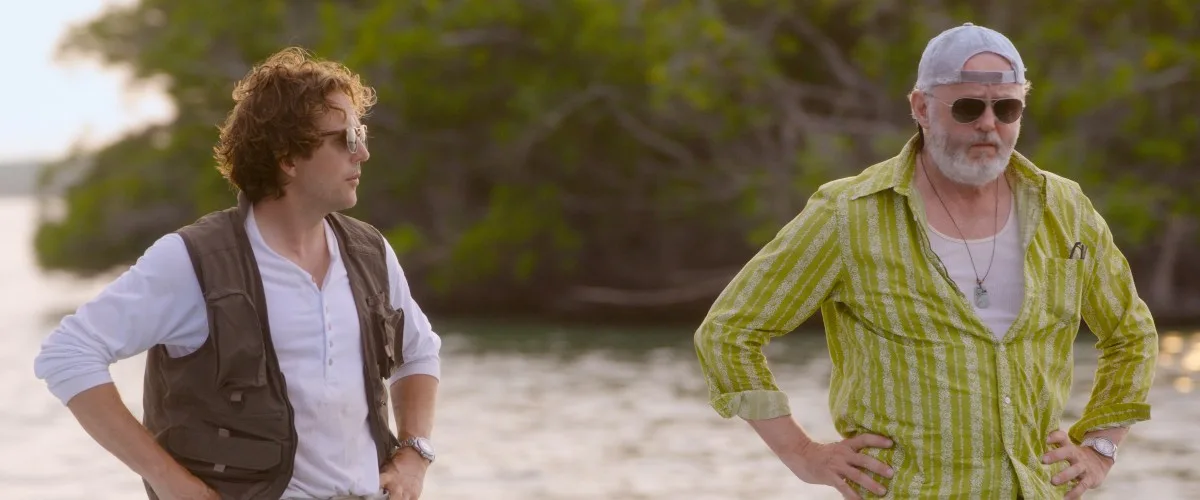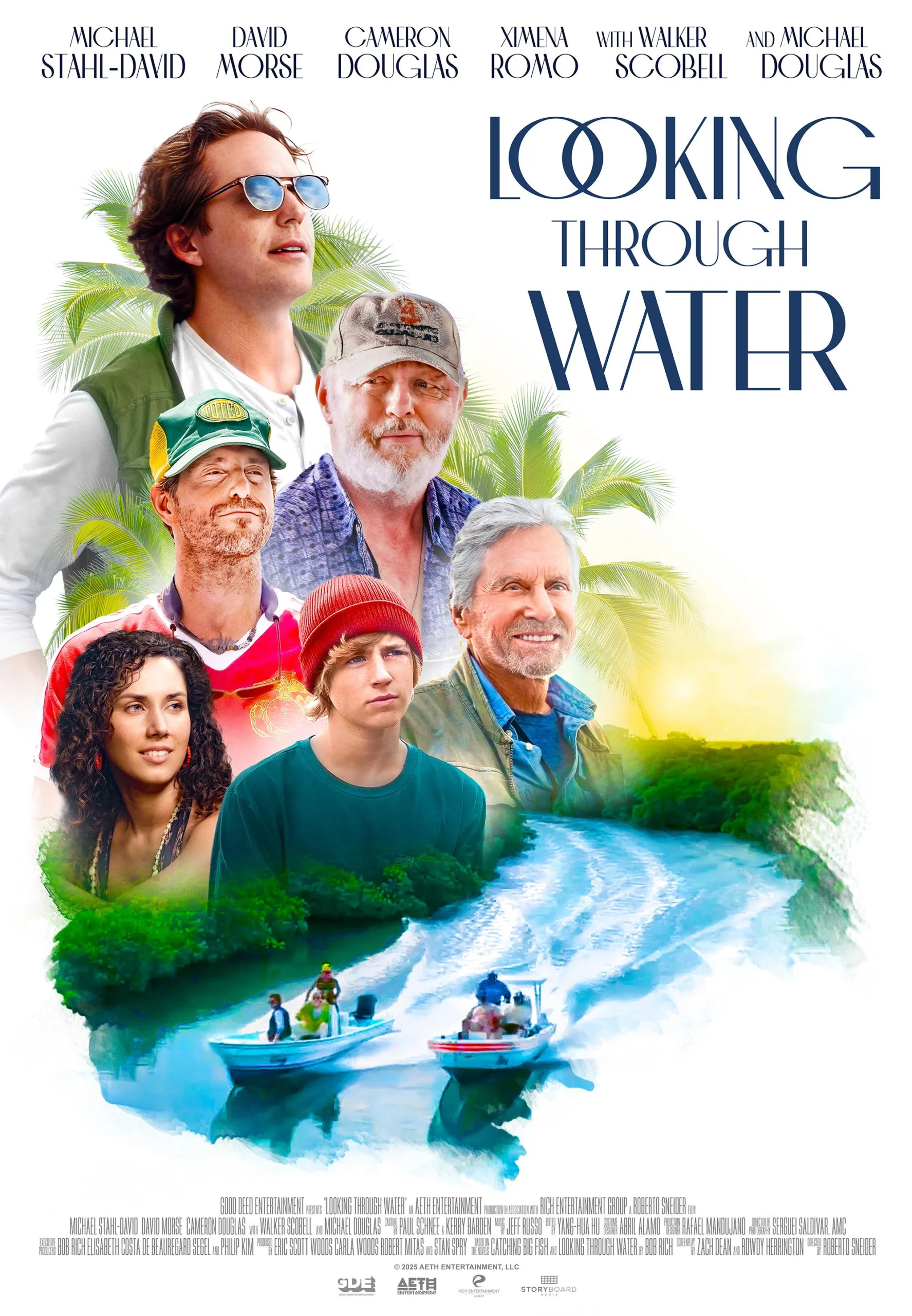Roberto Sneider’s “Looking Through Water” is a movie that begins with a postcard-pretty view of a lone fisherman and a nostalgic voiceover with thoughts about life, letting us know that this is going to be a contemplation of what disappears and what lasts, memory and meaning, mistakes and losses. It is also about absent fathers and the sons who are angry at them but still long for their attention and approval.
That voiceover is by Michael Douglas as William, who describes himself as “a fisherman, which makes me a believer.” We will see what William believes as he trades stories about his past to get some answers about the present from his sullen 14-year-old grandson, Kyle (Walker Scobell).
The aural and visual lyricism of the movie, with cinematographer Serguei Saldívar Tanaka’s exquisite views of the life-sustaining liquid of the title, contrasts with the melodrama of the storyline. It may be an artistic choice, but not always a successful one. The film should trust the audience a little more, especially in the first half hour, where the plot’s more outlandish elements lead awkwardly into a middle section with more natural developments that give us more breathing room to connect to what the characters are experiencing. The screenplay by Zach Dean and Rowdy Herrington is based on two books by Bob Rich—one a memoir of the author’s year-long quest to catch the 10 most sought-after saltwater game fish in a year, and the other a novel giving this film its title. It may be the attempted integration of the two genres that makes the tone of the film uneven.
There are numerous parallels between the stories of William and Kyle, ranging from poetic to heavy-handed. One perhaps unintentional parallel that may occur to viewers is in the flashbacks to the 1980s, with William in his 30s, using a then-futuristic giant cell phone, similar to the one Douglas had as Gordon Gekko in “Wall Street.” The narrative parallels include bits of dialogue, distracting technology thrown in the water so as not to disturb the natural world peace that allows in-person connection, struggles with fathers who behave badly, and facial injuries. Kyle, who has just been suspended from school, has a black eye and a split lip that William warns him will leave a scar. He then lifts his hat to show Kyle his own facial scar, near his eyebrow, and says that without that injury, Kyle would not exist. If Kyle tells him anything about what is going on with him, William will tell him about the scar and how it changed every part of his life.
We then see William in the ’80s, the younger version played by Michael Stahl-David. He was a high-powered businessman having to duck out for an urgent call on that brick of a phone as he was about to be honored for his leadership and philanthropy at an elegant gala dinner, seated with his beautiful fiancée and his colleague and best friend.
By the end of the evening, his relationships with both are shattered after an angry and humiliating outburst. Back at home, he accidentally wounds his forehead, which will be the origin of the scar we see in the present. “A call from your father would make the difference,” we heard someone tell William as he desperately tried to hold on to his business. A call from his father does make a difference, but it has nothing to do with the business.
William and his father, Leo (David Morse), are so estranged that William does not even know where in the world his father lives. It turns out it is a fishing community in Belize. His call to William is more than unexpected; it is almost bizarre, especially when William learns what it is about. The father, who has not heard from him in ten years, wants him to fly to Belize immediately so they can participate in a three-day father-son fishing competition. Perhaps to flee the disaster of the night before, possibly to confront his father, he accepts, arriving by private plane, still wearing his blood-stained tux.
Leo has a friend named Cole (Cameron Douglas, the real-life son of Michael and his first wife, Diandra Luker), who is about the same age as William. The fishing competition is organized by the beautiful and warm-hearted owner of the local bar, Estel (Tamara Tunie). And William meets a beautiful and intelligent doctor with a great singing voice named Julia (Ximena Romo). She also turns out to have some good advice about putting a musical cadence in casting a fishing rod.
In the third act, the film veers into more melodrama, featuring some soapy revelations and reconciliations. (There’s some literal tipping; after all, this movie has boats.) “Looking Through Water” wants to tell us about the importance of uncluttered connections to the natural world and to each other, but too often it ignores its own advice.




















